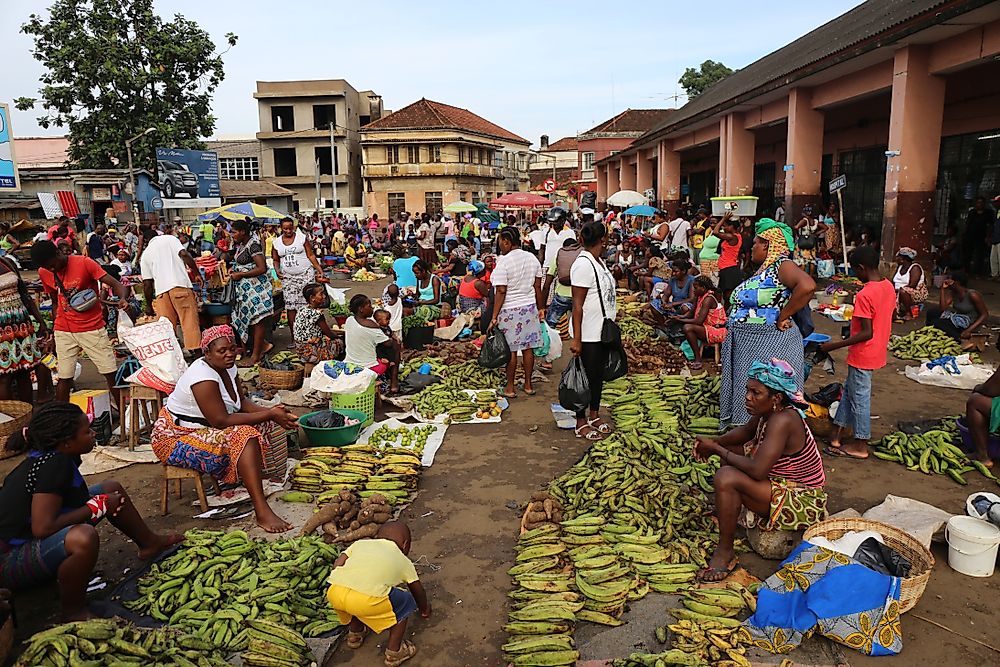The Smallest Economies in Africa

Figures concerning the economy of a country are always fluid and should, therefore, be used with caution. For example, one of the methods used in measuring gross domestic product (GDP) is the nominal method. The monetary amount of the market worth of all the goods and services produced by a country is that country’s GDP. The GDP can be thought of as the size of a country’s economy. The nominal method relies on the exchange rates of a country’s currency and is therefore subject to constant variations. Further, the nominal method does not provide a true account of life since it ignores the quality of life in a country. As such, these values should be used with care. The other method is called purchasing power parity (PPP). PPP factors in the quality and cost of living of a nation, but it has its problems.
Smallest African Economies
Combined, the countries on this list contribute less than 0.1% GDP to the total world economy. To further show the extremely low levels of contribution to the global economy by these countries, the top five countries’ combined share of the global GDP is less than 0.01%.
Smallest Countries
Some of the reasons that can be used to explain the global GDP share of the nations is their size. For example, the most underprivileged country on the list, Sao Tome and Principe (a share of 0.00046%), is the second smallest nation in Africa after Seychelles. Other countries in the list like Comoros (0.00084%), Djibouti (0.00268%), The Gambia (0.00133%S), Swaziland (0.00505%), and Burundi (0.00434%) are among the top ten smallest countries in the African continent.
Civil War
Some of the countries' small contribution can also be attributed to past and present civil war in the regions like Sierra Leone (0.00524%), South Sudan (0.00617%), Djibouti (0.00268%), among others.
South Sudan
Surprisingly, South Sudan is the wealthiest country on the list despite the fact that it’s the newest country in the world and it faces a lot of civil unrest and political instability. The country’s wealth can be attributed to the oil reserves discovered in the country. Sierra Leone has suffered greatly from past civil unrest, but the economy has been gradually increasing since the end of the unrest in 2002. By and large, the countries in this list are mostly unchanged with a few changes in the position of a few countries from 2016 values.
Other Factors Affecting the Economy
Sometimes a country may have a few opulent individuals and a high number of poor people. Such a state will have a low GDP. Sometimes the conditions may be different because of the size of a country. All the data should be analysed to get an accurate description of the economy as possible.
The Smallest Economies in Africa
| Rank | Country | Share of Global GDP (Percentage) |
|---|---|---|
| 1 | Sao Tome and Principe | 0.00046 |
| 2 | Comoros | 0.00084 |
| 3 | The Gambia | 0.00133 |
| 4 | Guinea-Bissau | 0.00150 |
| 5 | Seychelles | 0.00189 |
| 6 | Cabo Verde | 0.00210 |
| 7 | Central African Republic | 0.00255 |
| 8 | Djibouti | 0.00268 |
| 9 | Liberia | 0.00284 |
| 10 | Lesotho | 0.00313 |
| 11 | Burundi | 0.00434 |
| 12 | Swaziland | 0.00505 |
| 13 | Sierra Leone | 0.00524 |
| 14 | Togo | 0.0058 |
| 15 | South Sudan | 0.00617 |











